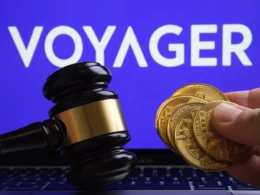It’s one of the main criticisms brought to the fore by its social media sceptics, and it’s not an easy one to argue against: today’s online communities are anything but independent.
In fact, the centralised manner in which both their core datasets and governance policies are controlled is a serious counterpoint to the democratisation brought forward by connecting billions of humans across the globe with virtually no delay.
There are concerns stemming from these characteristics on both the personal level, where private citizens are concerned, and a wider societal level, where groupthink and hiveminds are created via an interconnected (and often manipulated) maze of smaller social bubbles.
In practical terms, this has meant that the issue of social media management and social network administration have been front and centre of the political and ideological discourse very often lately – though at different levels.
Privacy and Security Issues

There is, of course, the issue of privacy. Whilst we love sharing our most intimate and private moments with a closed circle of tight friends and relatives, few of us are comfortable with the idea that those very same pictures and texts are stored in a privately owned and privately controlled server room somewhere in a foreign country, ready to be accessed by a plethora of third parties. Be they ruthless employees, marketers, or foreign secret services agents – most users feel violated just at the thought of such a degree of access.
Then there’s also the concern with national and social security, which directly stems from the privacy problem: a population with no secrets is easily manipulated and emotionally blackmailed into any narrative chosen by those with access to said data.
Even countries with low corruption indexes and a generally solid electoral apparatus like the United States and the United Kingdom had their own democratic crises when bad actors managed to exploit the legal and technical loopholes to user data which privately-owned social media failed to protect as needed. And the dangers of destabilisation via retweet aren’t limited to internal meddling either: it’s been an open secret for some time that China’s TikTok is not just a source of great quick-fire comedy skits but also an extensively developed surveillance tool that users seem to engage with on a voluntary basis.
Despite all of these threats, the societal and personal benefit gained from connecting individuals across borders, cultures and languages is one too great for humanity to set aside. There is no desire to abandon social platforms as the vehicle of communication for the 21st century, but this is counterbalanced by a strong sentiment in favour of a complete redesign of their administrative processes.
Is it then any wonder that, as far back as 2017, many were already calling for blockchain-based solutions to this authority issue? After all, the first burst of mainstream adoption of crypto and related technology happened almost in sync with the first worrying developments we’ve mentioned above.
The Dilemma of Censorship

Aside from social media data access and manipulation, there is also the threat of censorship – a tool used by the powerful and few for thousands of years to control the flow of the public discourse, but which feels particularly invasive when it descends into the spheres of private life, sexuality and ideology.
And we’re not talking just about the kind of abuse of this power most normally lamented, that of excessive censorship. While that is a real issue, with figures from all sides of the political spectrum criticising the private companies responsible for enacting said censorship on behalf of governments or interest groups (i.e. Donald Trump’s Twitter ban in the US, and violent political oppression of minorities in China), there is also the polar opposite issue: the situations where information wasn’t redacted soon enough. Such is the sad case of a young Brazilian girl doxxed on Twitter by a pro-life journalist who wanted to make it physically impossible for her to request an abortion to end her obviously unwanted pregnancy – which polarized opinions and ignited a fierce debate about the huge responsibilities of online moderation.
While collective governance doesn’t completely remove the presence of censorship of any kind, it at least removes it from the hands of a selected few private employees and makes it a very public and transparent affair.
Owning Your Own Following

Something highlighted by the very issue just mentioned is how much current centralised social networks resemble a walled garden much more than the public ‘agora’ which they claim to be. After all, anyone who owns the company’s servers can take away an user’s voice or following in just a few clicks – and there’s no lawful appeal that stands.
Blockchain-based social media would (and already does, where Aave’s Lens Protocol is concerned) solve this by directly and undeniably linking one’s following to their content and name – essentially allowing cross-platform porting of followers and intellectual property.
For creators, constantly beholden to a sometimes obscure and erroneous regulatory algorithm that can end their success on a certain platform overnight, this would be a godsend and a much-appreciated step towards real ownership of their products.
This can be a very reassuring component of the transition towards Web3 social media solutions: even if this pioneering new platform won’t take off, you’ll be able to bring any accrued following with you further into your journey with blockchain-based social tech.
From Screen to Pocket: The Monetisation Revolution

Just like Brave browser revolutionised the relationship between users and advertisers by directly rewarding its adopters with a direct share of any profit made from promotional messaging displayed to them as they explore the internet, blockchain-based social media could change content-based monetization forever.
Cutting out the middleman of a centralised platform that relies on cannibalising advertising revenue to fund the commercial activity of its free-to-use service would allow revenue from publicity to constitute a much bigger share of what sustains content creation.
In fact, it might even promote content creation as a whole by allowing a whole new generation of creative and innovative individuals to professionalise their activities and passion, and lead to more targeted and localised messaging.
The OnlyFans model has clearly shown that users would have no issue with individualised subscription and advertising revenue models, where the content and ‘brand loyalty’ is strong enough.
Not Quite There Yet

Despite all the positivity in this piece, and clear advantages, blockchain-centric social platforms will have to wait a little before making it mainstream.
There are several obstacles in the way, but the major one is scalability and security: networks the size of Bitcoin are almost impossible to crack without gargantuan resources, but any new chain or network created to support social media would be much younger and thus vulnerable.
It would also be much harder to run a smart contract-based platform once it’s scaled to Facebook or Whatsapp’s billion-strong user base, with individual accounts being run on a variety of hardware and very inconsistent internet speeds.
There are also issues of brand recognition and ease of use. In terms of the latter, a platform such as Instagram remains currently incomparably more approachable than any Web3 equivalent, and this is unlikely to change right away as the very concept of Web3 is still in its infancy. In terms of the former, starting from zero and fighting for market share against a behemoth big enough to have warranted several antitrust investigations will always be an uphill battle.
Despite the challenges ahead, the advantages of a decentralised online community are so clear and undeniable that it’s hard not to see the evolution of this brilliant but dangerous tool leading in the direction of a digital, trustless ledger.









